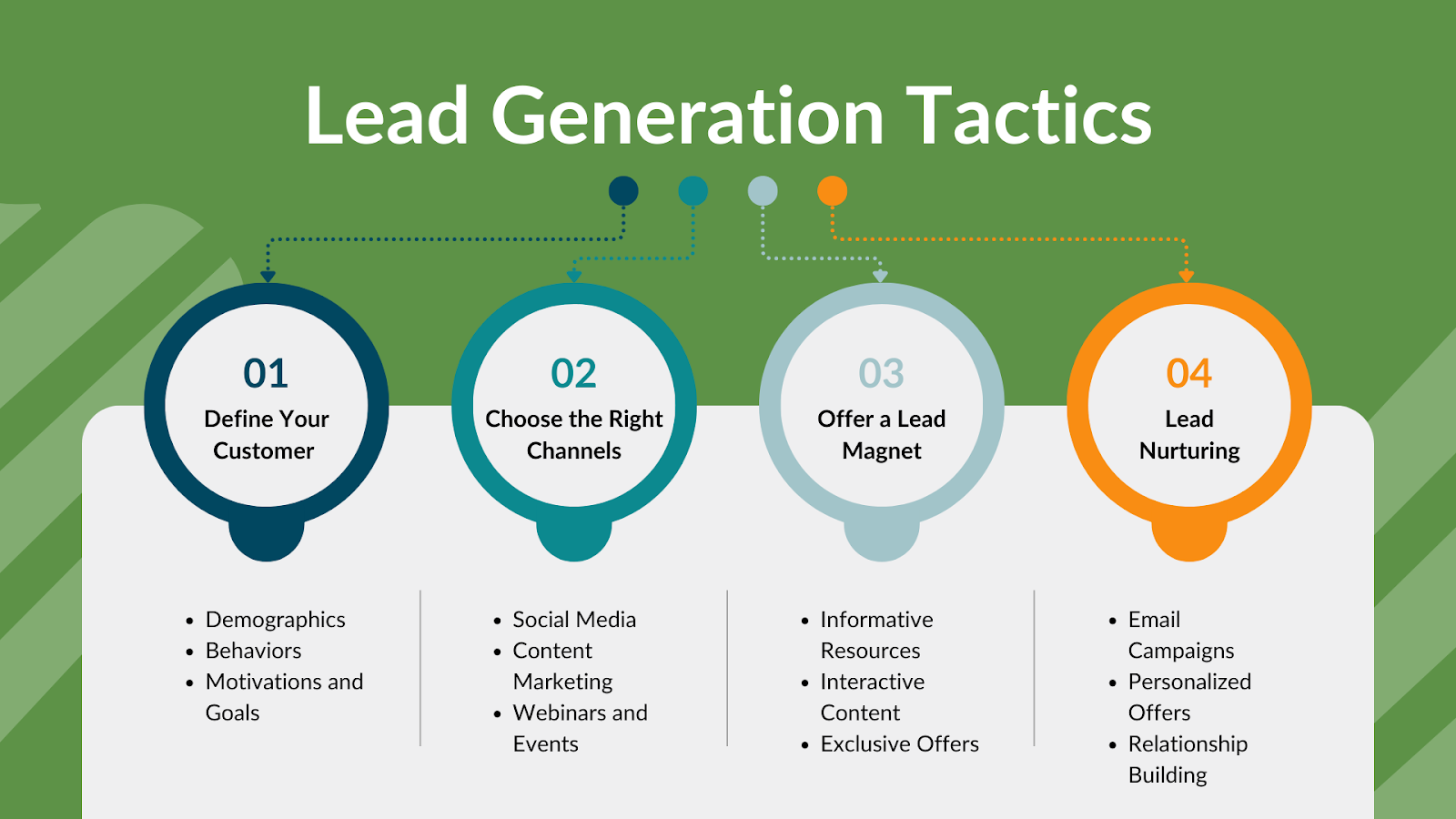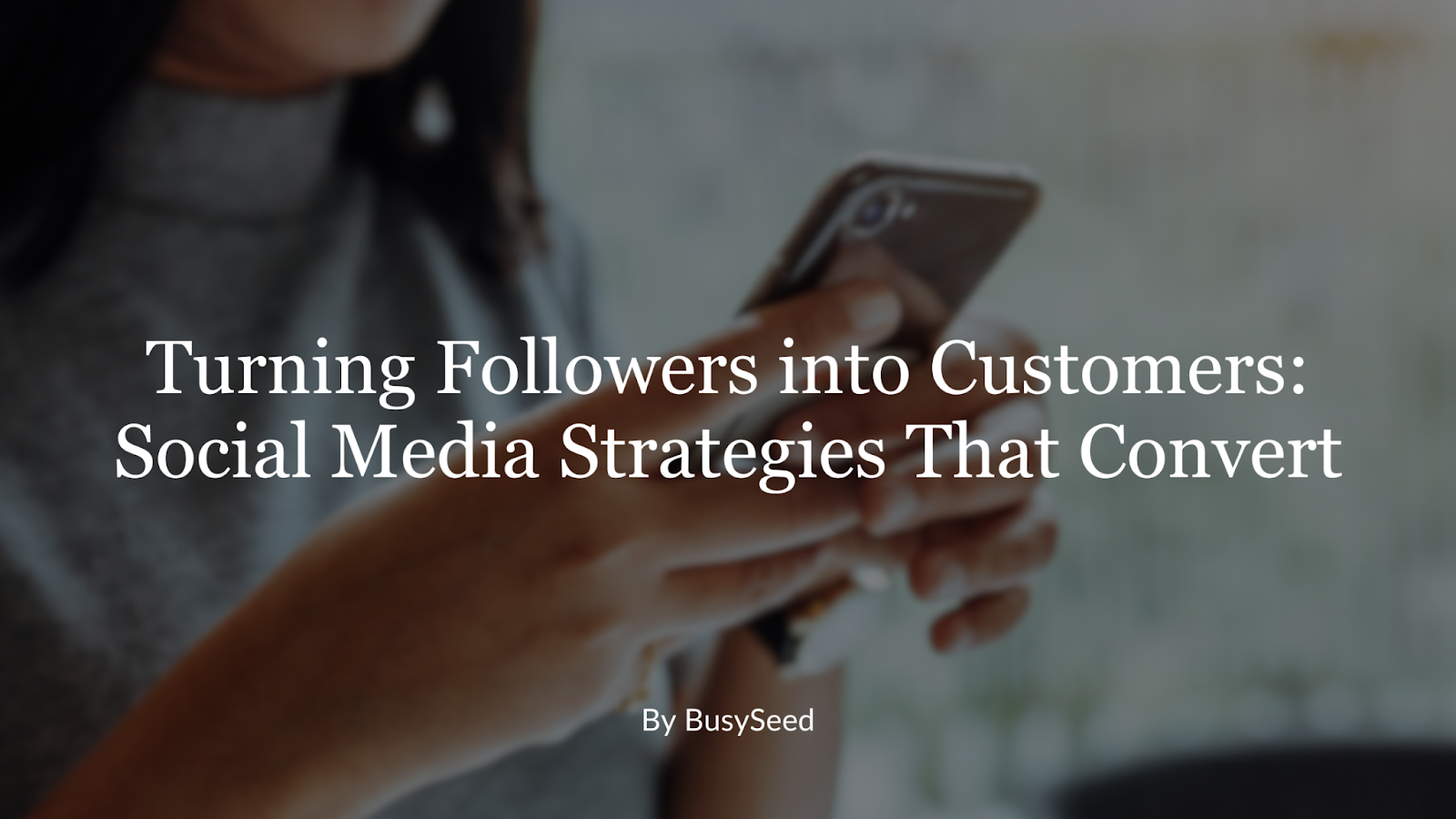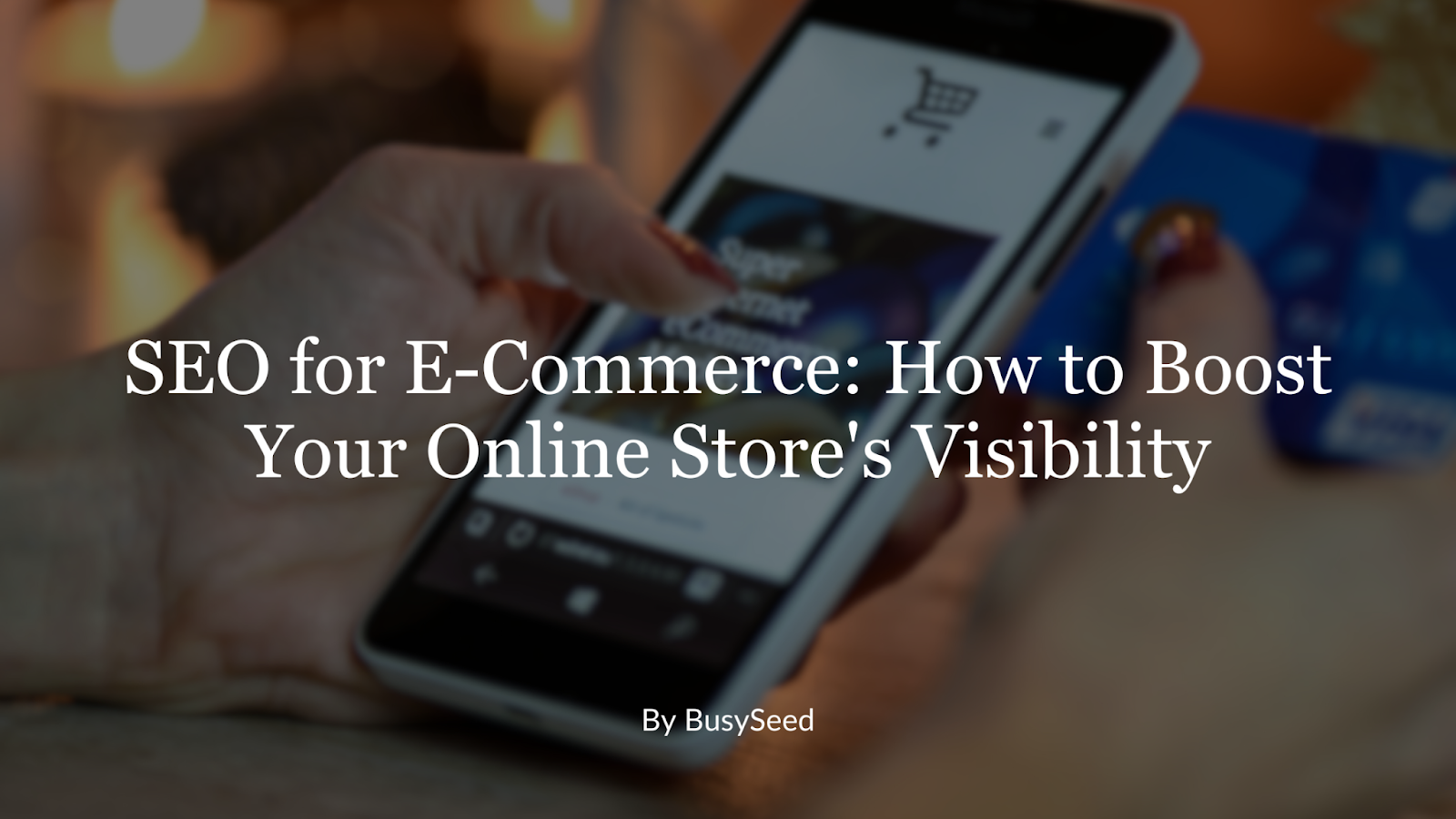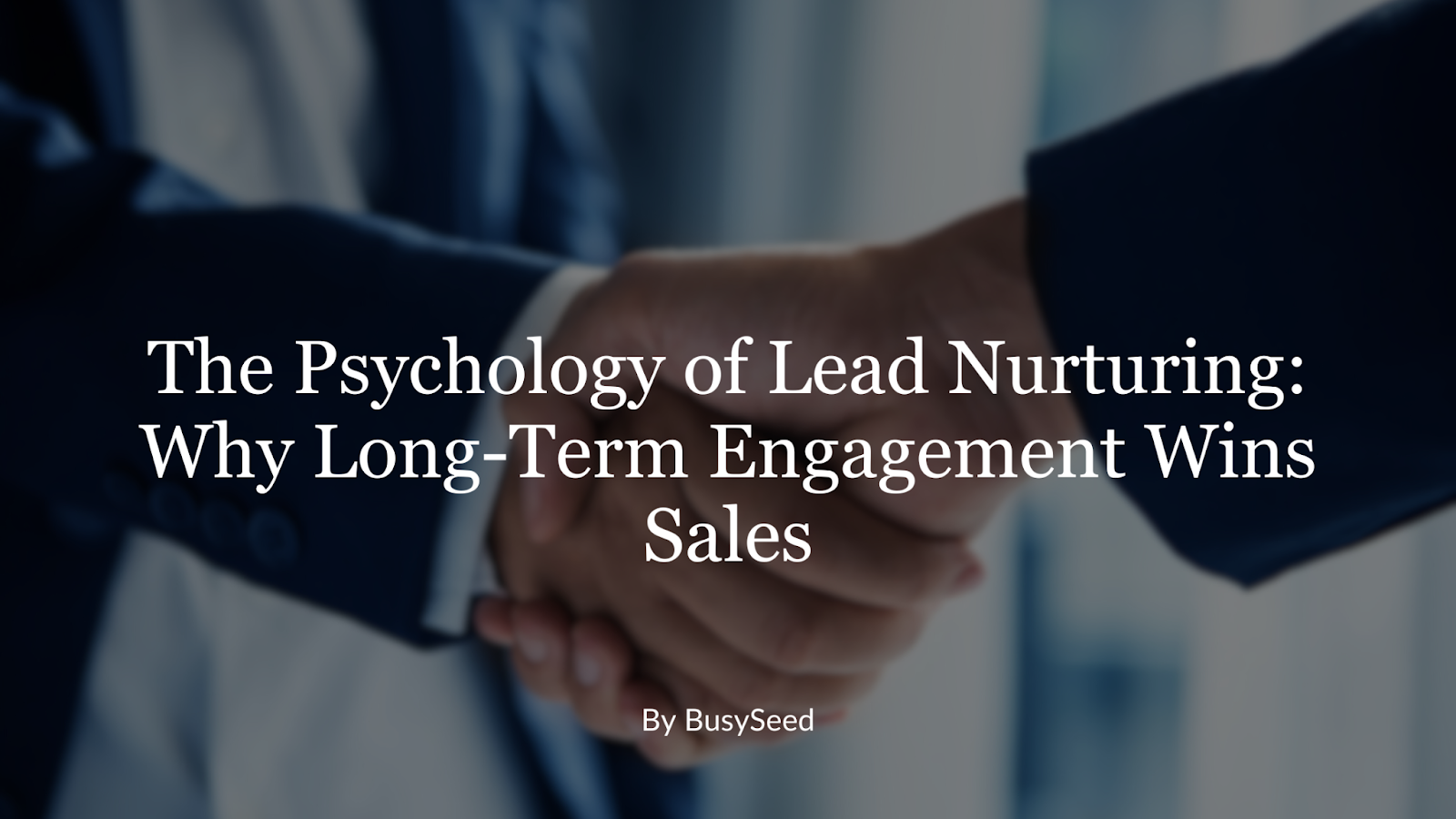Too long, didn't read?
Not to worry! We can sit down together and explain our findings and the contents of this blog in detail. This discussion will include insights from " ". Schedule some time on the right with our CEO.
How to Build Leads: The Ultimate Guide to Generating Business Leads That Convert
Effective lead generation requires more than just attracting potential customers—nurturing and converting them into loyal clients. This guide will walk you through proven strategies to capture high-quality leads, optimize your funnel, and boost your conversion rates, helping you achieve sustainable business growth.

A thriving business requires more than just a unique product or an excellent service. Success also depends on getting enough people interested in what you offer. This is where leads come into play. A lead is an individual or organization interested in your product or service. The more leads you have, the greater your chances of making sales. However, generating business leads is not merely about volume—it’s about quality. High-quality leads are those most likely to convert into loyal customers, fueling long-term growth.
Lead generation as a service is the process of attracting and converting prospects into potential customers. It’s not just a tactic; it’s a vital component of your business strategy. In this guide, we’ll explore what lead generation as a service is, why it matters, and how to excel in it to boost your business.
What Is Lead Generation?
Lead generation as a service is the process of transforming strangers into potential customers through strategic marketing efforts. At its core, it’s about identifying your target audience, engaging them with valuable content or offers, and converting them into prospects who show interest in your business. Effective lead generation ensures a steady stream of qualified prospects, which is vital for sustained business growth.
Many businesses rely on professional lead generation companies to achieve consistent results. These companies utilize digital marketing strategies, such as search engine optimization (SEO), content marketing, paid advertising, and social media campaigns, to attract and engage potential customers. By outsourcing this specialized work, businesses can focus on their core offerings while professionals handle the complexities of generating business leads.
Lead generation doesn’t end at acquisition—it’s the starting point of nurturing prospects into loyal customers. Companies that master how to build leads can outpace their competitors in acquiring and retaining customers.
How to Build Leads: Understanding Lead Generation as a Service
Lead generation as a service involves specialized strategies and tools to attract and convert potential customers. Here’s a breakdown of key terms you need to understand:
- Generating business leads: The overarching process of acquiring prospects who express interest in your product or service.
- B2B lead generation: Tailored strategies for businesses selling to other businesses, focusing on professional networks and decision-makers.
- How to build leads: The methodologies and techniques for creating a pool of qualified prospects.
Partnering with a lead generation company can be a game-changer for businesses. These companies bring expertise, tools, and proven methods to generate leads for business effectively. By leveraging strategies like SEO to improve visibility, email marketing to nurture relationships, and paid ads to target specific audiences, they ensure businesses reach the right prospects at the right time.
Lead generation companies also analyze data to refine their approach, ensuring ongoing optimization. This blend of strategy, technology, and continuous improvement makes outsourcing lead generation a smart choice for businesses looking to scale.
Techniques for Generating Business Leads

1. Define Your Customer Persona
Defining your customer persona is the foundation of successful lead generation. A buyer persona is a detailed profile of your ideal customer, combining insights from market research and real customer data. Key elements of a persona include:
- Demographics: Age, gender, location, income level, and education.
- Behavior: Buying habits, preferred communication channels, and online activity.
- Motivations and Goals: What drives your customers and what problems they seek to solve.
By understanding your customer’s needs and pain points, you can craft targeted campaigns that resonate with your audience. A well-defined persona ensures your marketing efforts attract high-quality leads who are more likely to convert.
2. Choose the Right Channels
Not all marketing channels are created equal. To maximize your lead generation efforts, focus on platforms where your target audience is most active. Popular channels include:
- Social Media: LinkedIn is excellent for B2B lead generation, while platforms like Instagram and Facebook are ideal for B2C audiences.
- Content Marketing: Blogs, eBooks, and case studies position your brand as a thought leader, attracting leads through valuable information.
- Webinars and Events: Live interactions build trust and allow for real-time engagement.
The key is to align your channels with your audience’s preferences. A data-driven approach can help identify the platforms that yield the highest ROI for your business.
3. Offer a Lead Magnet
Lead magnets are powerful tools for capturing contact information. They provide value in exchange for a prospect’s details, helping you build your email list and initiate nurturing. Examples include:
- Informative Resources: Free eBooks, whitepapers, and guides.
- Interactive Content: Quizzes, calculators, or webinars.
- Exclusive Offers: Discounts, free trials, or limited-time promotions.
A compelling lead magnet should solve a specific problem or answer a pressing question for your audience, making it an irresistible offer for generating business leads.
Nurturing Leads: Turning Interest into Action
Generating business leads is only the beginning; nurturing them into paying customers is the ultimate goal. Lead nurturing involves building relationships with your prospects through personalized communication and value-driven content. Here’s how to do it:
1. Personalized Email Campaigns
Email marketing remains one of the most effective tools for lead nurturing. Personalized emails tailored to a prospect’s needs and behavior can significantly improve engagement. Tips for effective email campaigns include:
- Segmentation: Group your audience based on demographics, behavior, or stage in the buyer’s journey.
- Automation: Use email sequences triggered by specific actions, like downloading a lead magnet or visiting your website.
- Value-Driven Content: Provide useful information, such as tips, industry insights, or special offers.
2. Segment and Score Leads
Lead segmentation and scoring allow you to prioritize high-value prospects. Assign scores based on actions like email opens, website visits, or form submissions. This data helps you tailor your approach and focus efforts on leads closer to conversion.
3. Test and Optimize
The best lead nurturing strategies evolve through continuous improvement. Test different email subject lines, call-to-action (CTA) designs, and campaign timings to identify what resonates most with your audience. Use analytics to measure performance and refine your tactics for generating business leads.
Why Choose BusySeed for Lead Generation?
BusySeed is a leader in the lead generation industry, offering comprehensive services to help businesses grow. Here’s why BusySeed stands out:
- Tailored Strategies: Every campaign is customized to align with your business goals and target audience.
- Diverse Services: From SEO and social media management to content marketing and paid advertising, BusySeed provides end-to-end solutions.
- Proven Results: BusySeed’s case studies and testimonials highlight their ability to deliver measurable outcomes. Clients consistently report increased lead volume and improved lead quality.
For example, BusySeed’s LinkedIn campaigns have helped B2B companies connect with decision-makers, while their social media strategies have boosted engagement for B2C brands. With a focus on analytics and optimization, BusySeed ensures your campaigns deliver maximum ROI.
Conclusion
Lead generation as a service is the cornerstone of business growth. By defining your customer persona, selecting the right channels, and offering compelling lead magnets, you can attract high-quality leads. Pair these efforts with effective nurturing strategies like personalized emails, segmentation, and continuous testing to convert leads into loyal customers.
Partnering with a professional lead generation company like BusySeed can take your efforts to the next level. With tailored strategies and proven expertise, BusySeed helps businesses generate quality leads for business and drive conversions. Contact BusySeed today to learn how they can transform your lead generation process and help your business thrive.











